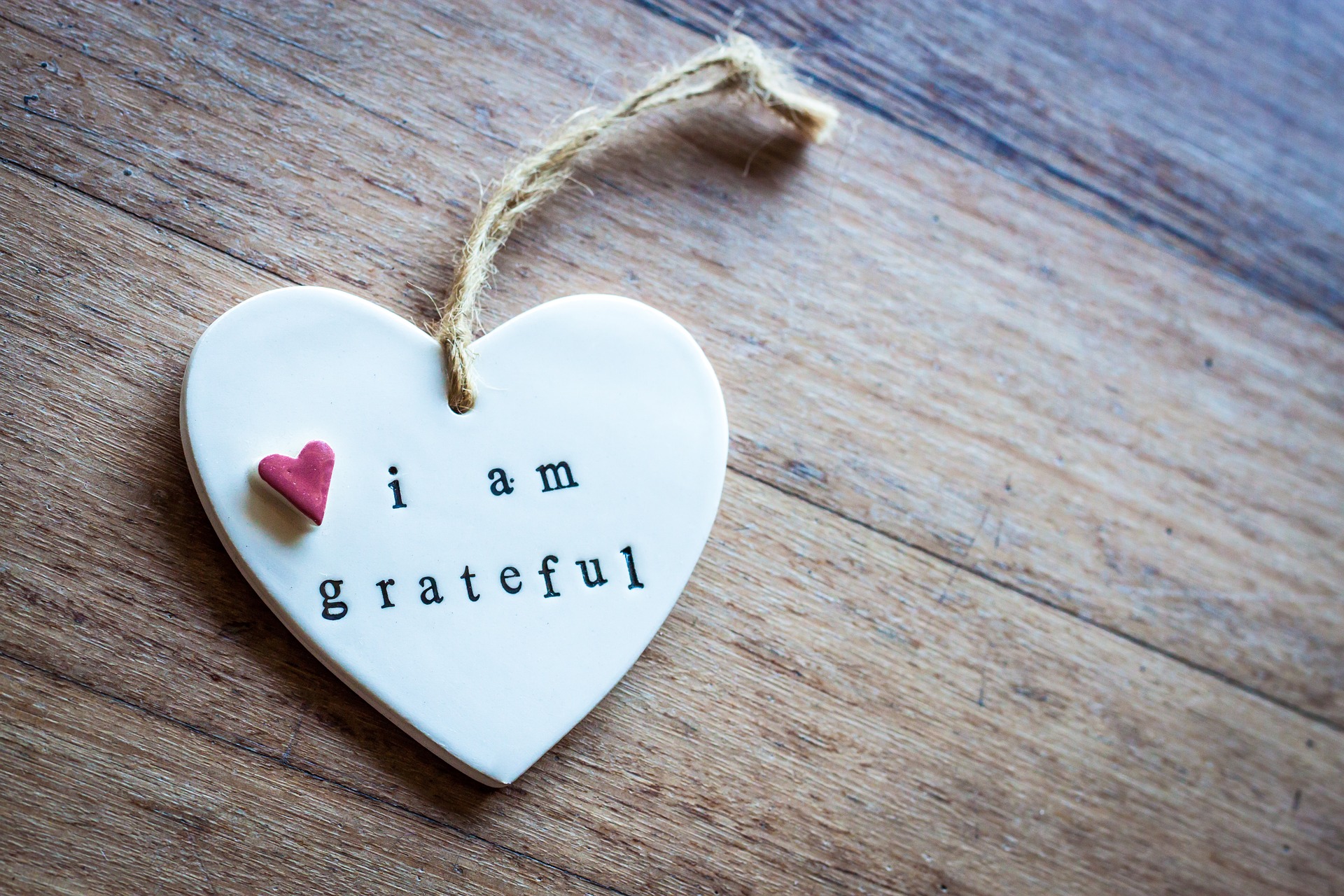I have been studying the effects of gratitude on mental health and relationships.
In a series of small exercises, I helped my apprentices and employees cultivate gratitude. I asked them to write things they are thankful for in a “gratitude journal” regularly. Writing down good things each day makes it easier to notice good things as they happen.
Be Grateful for What you Have
Gratitude is a rare commodity in 2020. For the most part, we worry about things we lack instead of appreciating what we already have and who we are. We are raised in a materialistic society that preaches possessions and wealth as the source of happiness.
Understanding gratitude is one of the simplest ways to improve our satisfaction with our lives. Instead of complaining about the things we think we deserve, we should take a few moments to focus on all that we have.
Having Gratitude
Pause. Notice and absorb all that you have been blessed with in life. Let it sink. Relish your blessings at the moment they happen.
Alas, today, the collective emphasis is on continuously fulfilling the needs. Expanding the needs and demanding more is the worldly doctrine of today. We are made to feel that what we have is not enough. The ideas of scarcity, accumulation, and competition are spoon-fed to us. This kills the innate feeling of gratitude.
True gratitude involves the realization that existence is coexistence and we are dependent on other elements in this existence. We need to acknowledge that other people—or even other elements in this existence have given us many gifts, big and small, to be thankful for.
When we are full of gratitude it makes us appreciate the value of what we have. As a result, we extract more benefits from it and we’re less likely to take it for granted.
You are living in a dystopia
You live in the atmosphere of fear whereas your natural disposition is to be fearless. Gratitude is a diminishing virtue in these modern times.
You are ungrateful partly out of fear, fear of accepting what you have. You think that appreciating things as they are might make you complacent, you might lose the will power to take on new changes. Your present is serving your future goal and this makes anxiety feel so much natural.
Complaining can be dangerous. Allowing your brain to carve a neural pathway where the first response to any circumstance is to complain can make your life unnecessarily difficult.
In truth, there is far more courage, honesty, and integrity in being able to see everything as it is and appreciating everything you have.
Gratitude is the dividend due to you
Gratitude is the quality of being thankful. Gratitude is when you notice the goodness of life and existence, all small and significant advantages bestowed upon you.
You are the most advanced species of all. You have the power of imagination, understanding, and memory. You can communicate, create meaningful relationships, experience life as it is. Your goal as a human being is to take care of your nourishment and create happy, joyful memories.
Why gratitude matters
- Gratitude facilitates social well-being.
- Gratitude is associated with a higher level of emotional well being.
- Gratefulness boosts happiness and fosters physical and psychological health, even among those already struggling with mental health issues.
- People who are grateful feel less pain, less stress, suffer insomnia less, have stronger immune systems, experience healthier relationships.
- Practicing gratitude curbs the use of words expressing negative emotions. It shifts inner attention from negative emotions like resentment and envy, minimizing the possibility of depression, anxiety, etc.
***
Be appreciative of life and try to feel less cynical, you’ll be in a thankful frame of mind.
Takeaway ~
Current belief ~ Strive for more, don’t be content with what you have.
In popular culture ~ Thomas Oppong in his article writes that success is a function of persistence and the willingness to work hard for thousands of hours to make sense of something that most people would give up on after a few hundreds. He draws a perfect picture for those who want to succeed in life.
As per the philosophy of coexistence, success and failure are not relevant in the context of reality. The basis of competition is the scarcity mindset that society has given to humanity. Being happy and creating meaningful experiences is what real success is. If this scarcity thought can be reversed and the abundance in nature is accepted, humanity should be good. Abundance is there on the Planet so much so that human needs for all the 7.7 billion are easily satiated. The greed of even a few thousand would find the planet short of stuff. The current pandemic has helped humanity understand need and greed.
Life is no battle but an opportunity to know the reality. Existence is full of love and abundance. One just needs to coexist with other human beings, nature, and create beautiful memories in every interaction. And, be grateful.


